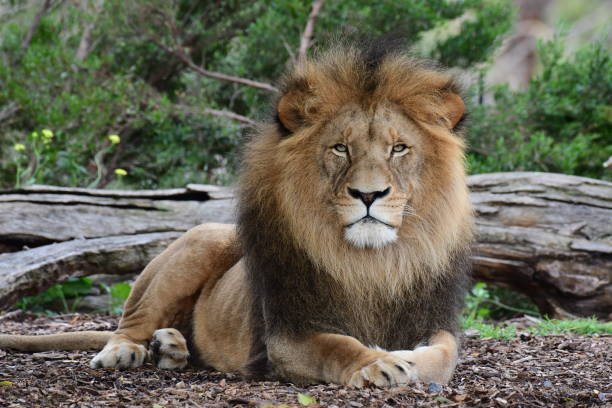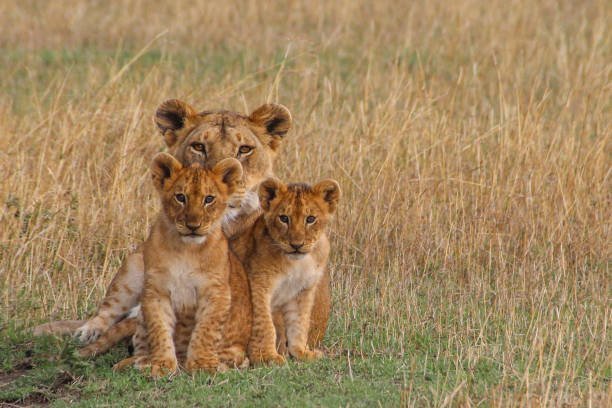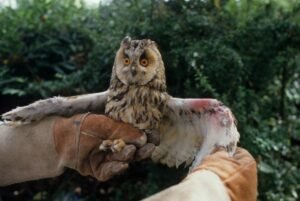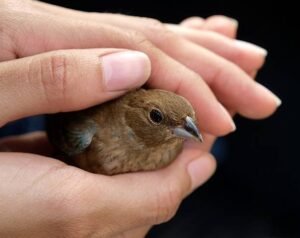Can you adopt a rescued lion as a pet, and should you?

Introduction:
In this article, we delve into a deeply debated topic: the adoption of rescued lions as pets. In recent times, the notion of having exotic pets, including lions, has gained attention, sparking ethical and moral questions. The allure of having a majestic lion as a companion contrasts sharply with the complexities and responsibilities involved.
Rescued lions, often victims of illegal wildlife trade or captive exploitation, face numerous challenges adapting to domestic settings. This article explores the legal, ethical, and practical aspects of adopting a rescued lion, shedding light on the implications for both the animal and the adopter.
Regulations on Lion Adoption:
The adoption of rescued lions as pets is tightly regulated, and these regulations vary significantly across countries. Many countries have strict laws and regulations against keeping exotic animals, including lions, as pets due to the potential risks they pose to public safety and animal welfare.
These regulations often require specific permits, enclosures meeting certain standards, and adherence to animal welfare guidelines. Violating these laws can result in severe penalties, including fines and imprisonment. Even in countries where ownership is legal, permits are generally challenging to obtain due to the rigorous criteria set by wildlife authorities. These legal restrictions are in place to protect both the public and the animals from the inherent dangers of keeping wild animals in domestic environments.
Ethical Implications of Keeping Lions as Pets:
Keeping lions as pets raises profound ethical concerns. Lions are wild animals with complex social structures and natural behaviors. Domestication attempts often lead to stress, anxiety, and behavioral disorders, causing immense suffering to the animal. Moreover, the demand for exotic pets fuels illegal wildlife trade and captive breeding, contributing to the exploitation and endangerment of lion populations in the wild.
Ethically, it is fundamentally wrong to support industries that exploit lions for profit, compromising their well-being and jeopardizing their conservation status. Responsible ethical considerations prioritize the natural behaviors and welfare of the animal above human desires, advocating for the protection of these majestic creatures in their natural habitats or in ethical sanctuaries where their needs can be met adequately.
Challenges in Caring for Rescued Lions:
Caring for rescued lions presents numerous challenges. Lions require vast territories and specific social structures, making captivity inherently stressful for them. Ensuring their physical and mental well-being demands substantial resources, including spacious enclosures, specialized diets, veterinary care, and enrichment activities to prevent boredom and psychological distress.
Moreover, rescued lions often come from traumatizing situations, requiring significant time and expertise to rehabilitate. Many individuals may never fully adapt to captivity, facing lifelong challenges. Adequate care demands a deep understanding of lion behavior and an unwavering commitment to providing the best possible quality of life. Meeting these challenges requires substantial financial resources, skilled staff, and continuous dedication, making the task of caring for rescued lions a complex and demanding endeavor.
Legal restrictions reflect the necessity of safeguarding both animals and humans from the dangers associated with keeping lions as pets. Ethical concerns emphasize the importance of respecting the inherent rights and natural behaviors of these magnificent creatures. Recognizing these challenges and implications is crucial for making informed and responsible decisions, ensuring that lions are treated with the dignity and respect they deserve, either in their natural habitats or in ethical sanctuaries where their well-being is the top priority.
Impact on Lion’s Physical and Mental Well-being:
Adopting a rescued lion as a pet can have severe consequences on the animal’s physical and mental well-being. Lions, as wild animals, have specific needs that are nearly impossible to meet in a domestic setting. Confinement in small spaces leads to physical issues like obesity, muscle atrophy, and dental problems.
Moreover, the absence of natural stimuli and social interactions can result in severe stress, anxiety, and depression. These conditions drastically shorten their lifespan and lead to a poor quality of life. Attempting to domesticate a lion disrupts their natural behaviors, causing frustration and emotional distress. The psychological impact is profound, often leading to behaviors like self-mutilation and aggression, which pose significant risks to both the animal and anyone nearby.
Mentally, lions suffer from boredom and frustration, which can lead to aggressive behavior and self-harm. Moreover, the lack of social interaction with other lions can cause profound psychological distress. In essence, adopting a lion as a pet inevitably compromises its overall health, happiness, and life expectancy.
Alternatives to Pet Adoption:
Instead of adopting lions as pets, focusing on conservation and education efforts offers a more ethical and sustainable solution. Conservation organizations work tirelessly to protect lions and their habitats. By supporting these initiatives, individuals can contribute directly to the preservation of these magnificent creatures in their natural environments.
Education plays a pivotal role in changing public attitudes. Teaching people about the importance of lions in ecosystems, their role in biodiversity, and the ethical issues surrounding exotic pets fosters a sense of responsibility and respect towards these animals. Through awareness programs, societies can be inspired to protect lions, both in the wild and in ethical sanctuaries, where their well-being is prioritized.
Support for Sanctuaries:
Responsible wildlife tourism and support for ethical sanctuaries provide avenues for people to appreciate and learn about lions without harming the animals. Ethical sanctuaries provide rescued lions with spacious, natural enclosures, proper veterinary care, and enrichment activities.
Supporting these sanctuaries financially or through volunteer work ensures that rescued lions live out their lives in a safe and enriching environment. Responsible wildlife tourism, such as guided safaris and eco-tours, allows individuals to observe lions in their natural habitats, promoting awareness and respect for these animals.
Income generated from such tourism often supports local communities and conservation projects, creating a positive cycle that benefits both wildlife and humans. By choosing these alternatives, individuals can actively contribute to the well-being of lions, supporting their conservation while respecting their wild nature.
Conclusion:
I hope this exploration underscores the ethical complexities of adopting rescued lions as pets. The impact on a lion’s physical and mental well-being, often leading to stress and health issues, emphasizes the inherent cruelty of confining these wild creatures. Instead, redirecting efforts toward conservation and education initiatives is paramount.
Supporting reputable sanctuaries and promoting responsible wildlife tourism offer ethical avenues to appreciate these majestic animals. These alternatives not only protect lions but also preserve their natural behaviors and habitats. In the grand tapestry of conservation, our responsibility lies in respecting the intrinsic value of every lion, allowing them to thrive in the wild, and contributing to the balance of ecosystems. Choosing education, conservation, and ethical engagement over captivity ensures a future where lions can roam freely, embodying the wild spirit that defines them.










Post Comment